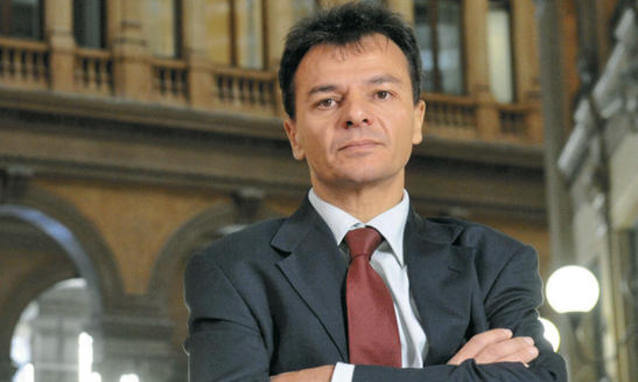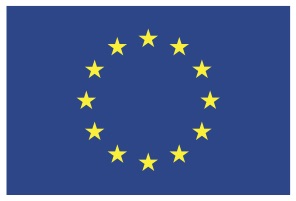by Thomas Fazi
Since the crisis began in 2008, an intense European discussion has challenged official policy priorities. Civil society organisations (CSOs), trade unions, think tanks and grassroots campaigns have called for ending austerity and restoring shared prosperity, reforming (or dismantling) EU institutions, reducing inequality and making Europe more inclusive, achieving environmental sustainability and reacting to climate change with green economic alternatives.
With regard to the European project in particular, alternative responses to the crisis have emerged. A first frame is a reversal of European integration, emphasising the need for a revival of national political authority and policy processes in several fields: this includes demands for greater fiscal autonomy of national governments against European budget rules and other ‘insubordinate’ actions concerning the protection of national welfare states, fiscal rules, production activities, leading to calls for a progressive exit from the euro, or ‘Lexit’. Left political parties that share a strong anti-euro or euro-critical stance include Izquierda Unida in Spain, the Parti de Gauche in France, the Portuguese Communist Party and other minor parties such as the Greek Communist Party, the KKE. Also, various ‘Plan B’ conferences have been organised around Europe in the past year and a half to discuss alternatives to the Eurosystem (the next one is to be held in Copenhagen on November 19-20). The victory of the ‘Brexit’ option in the UK referendum has made the reversal of European integration real, opening up a crisis whose outcome is highly uncertain. This largely results from the failure of national and European policies to respond adequately to the crisis, making Europe unpopular as never before – as documented by Eurobarometer surveys. In this regard, a number of important pro-European intellectuals – such as Joseph Stiglitz, Paul De Grauwe and others – are now saying that a progressive reform of the euro area appears more unlikely than ever.
A second, contrary frame is the traditional federalist argument that greater European integration is the way forward, aiming at the creation of a democratic ‘federation of citizens’, in contrast to the kind of authoritarian or ‘executive federalism’ that European elites are now pursuing. There is a relative consensus among progressive integrationists that European democracy should rest, first and foremost, upon a significantly empowered European Parliament and a revamped European Commission with a directly elected president. It has also been argued that a separate parliamentary chamber for the eurozone should be created comprising some members of the national parliaments.
A third frame for democratising Europe has focused on the project of a Europe beyond neoliberalism, arguing that most shortcomings are the result of the neoliberal paradigm enforced by European institutions. Here, the democratisation of the European decision-making process needs to go hand in hand with a reduction in the power of finance and technocratic bodies, ECB included; strict limits to the ‘revolving doors’ system between business and European politics; a move beyond austerity in macroeconomic policies; a reduction of inequalities; greater protection of social and workers’ rights and a greater role for trade unions. This has been the approach proposed by a large number of civil society organisations, from the EuroMemo Group to the Transnational Institute, from Sbilanciamoci!in Italy to Les Economistes Atterrés in France, from ATTAC to many labour organisations. Political parties that share this position include SYRIZA in Greece, Podemos in Spain and the Bloco de Esquerda in Portugal. A recent development in this area has been the creation of Yanis Varoufakis’ DiEM25 (Democracy in Europe 2025) movement, which focuses on the democratic question in an integrated Europe.
The range and depth of the various analyses and proposals put forward by European civil society in recent years are indeed remarkable. Forecasts on the impact of the crisis and austerity policies in Europe, for example, have proved strikingly accurate. In hindsight, we can see that critical scholars and poorly funded CSOs have predicted the (negative) outcome of several European economic policies with a much greater accuracy than the official forecasts of bodies such as the European Commission, ECB or IMF. In particular, as early as 2010, despite claims that austerity would not harm growth – in fact would boost growth, in line with expansionary fiscal contraction (EFC) theories – various critical and non-mainstream scholars and economists pointed out that it would trigger an all-out recession and kill the fragile post-crisis recovery. Which is precisely what happened.
As a result, many of the criticisms made by civil society in recent years and initially ignored or dismissed by governments and mainstream academics are now increasingly shared by mainstream organisations, think tanks and government agencies. The most striking recognition has come from the IMF, which has reversed several of its standard policy recommendations, on the basis of evidence from its own research. In a summary of policy suggestions derived from studies on fiscal austerity and liberalisation of capital flows with the unexpected title ‘Neoliberalism: oversold?’, IMF authors argue that ‘the benefits of some policies that are an important part of the neoliberal agenda appear to have been somewhat overplayed’.
Overall, however, there is no denying that most civil society proposals have had little – or much delayed – reception in policymaking circles, particularly in Europe. Why? European and national policymaking has become increasingly distant from society and unwilling to take on board widespread social concerns. On the civil society side, it could be argued that its intellectual vitality is hindered by its weaknesses, especially the fragmentation of its organisations and campaigns. In particular, the 2007-8 financial crisis and subsequent political response has seriously hindered the ‘Europeanization of public discourses and mobilization’ that has traditionally characterised social movements and political organisations – particularly the global justice and anti-globalisation movement of the late 1990s and early 2000s.
While the recession and austerity measures have been common to most EU countries, the great majority of anti-austerity mobilisations have developed within a national context and along autonomous lines, with limited cross-border coordination and vision. Moreover, as noted by Mario Pianta, Paolo Gerbaudo, Donatella della Porta and others, these protests have been marked by the emergence of the ‘subterranean politics’ of the indignados and Occupy groups – a politics of citizens who feel unrepresented by existing political institutions, including parties and trade unions, as expressed by recurrent slogans like ‘no me representan’ (‘they don’t represent me’). As a long and deep depression of Europe’s periphery ensued, and as the rising power and increasing lack of legitimacy of EU technocratic institutions became increasingly apparent, the rift between those arguing for a transnational solution to the crisis – a progressive reform of Europe ‘from within’ – and those suggesting a reversal of European integration, widened. In this regard, the rise and fall of SYRIZA was a watershed moment.
Building a common front for change appears to be harder than ever, due to ideological divergences, the frequent focus on ‘single issue’ campaigns and the difficulty of forging a Europe-wide perspective. Yet, it is more necessary than ever. A recent study that I have conducted under the ISIGrowth project– How can Europe change? Civil society proposals for policy alternatives on socially inclusive and sustainable growth (downloadable here) – may help to build common ground by providing a comprehensive view of the state of ideas, actions and proposals of European civil society. It shows that the large majority of civil society views and policy proposals continue to have a Europe-wide focus and to share the ambition of changing European policies rather than ‘opting out’ of them. This, however, is not an attitude that can be assumed to continue indefinitely. Opinion polls clearly indicate that trust in the European institutions by EU citizens has fallen dramatically compared to pre-crisis levels. Unless policies become more responsive to the demands of civil society, the disenchantment with Europe – and the desire to return to national priorities and horizons – is likely to spread also among civil society organisations. And, as ever, time is running out…











